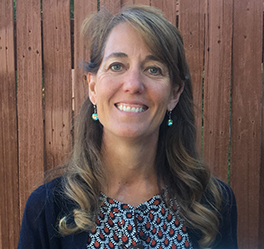Related Links
Background
If your facility produces, treats, disposes of, or otherwise discharges waste water, you may need a wastewater discharge permit from the Utah Division of Water Quality or the Division of Drinking Water. See Rule R317-8. Utah Pollutant Discharge Elimination System (UPDES) for more details.
Facilities that produce, treat, dispose of, or otherwise discharge waste water from a point source (such as a pipe, ditch, or channel) into a water of the State (such as a lake or river) may need permits from the Division of Water Quality under the Utah Pollutant Discharge Elimination System (UPDES).
Once a completed application is submitted, the Division of Water Quality issues a draft permit, seeks public comment, holds necessary public hearings, and issues final permits. Annual fees range from $100 to $8,000, depending upon type, size, and complexity of the proposed facility (see DEQ Fee Schedules). Time needed for discharge permits is generally 180 days from application to issuance.
The complexity of the permit determines the timeline needed. Factors that increase complexity include the beneficial use and anti-degradation status of the receiving water and whether a Total Maximum Daily Load determination has been established for it. This information can be found on the Beneficial Uses and Water Quality Assessment Map. Most permits are valid for five years, with the exception of construction permits, which do not expire. See Rule R317-8 Utah Pollutant Discharge Elimination System (UPDES) for more details.
DWQ is required to verify the lawful presence in the United States of an individual at least 18 years of age (includes sole proprietor doing business under an assumed name) who has applied for Onsite Professional Certification, Wastewater Operator Certification, or who has applied for federal SRF funding. A Citizenship/Alien ID Certification Form (859 KB) is available that must be completed, notarized, and submitted to the DWQ along with a copy of photo identification.
Permits are required for all industrial, municipal, and federal facilities, except those on Indian lands (including storm drains and water well drilling activities).
Does your facility discharge to surface waters?
YES: Visit Utah Pollutant Discharge Elimination System (UPDES) Permits.
Is your project a construction site that needs to de-water from a trench, excavation or other area, or from hydrostatic testing activities that include only uncontaminated water as it was encountered?
Construction Dewatering and Hydrostatic Testing is a general permit that applies to construction dewatering of groundwater and/or hydrostatic testing of pipelines, tanks, or other vessels located in the State of Utah. This permit may also be applied to other discharges related to construction activities such as wheel washing at egress points, concrete cutting fluid with no additives, drinking water pump testing, or well development.
YES: Visit each of the following.
Is your facility a coal mine?
YES: Visit General Permit for Coal Mining Operations (17 MB).
Is your facility an animal feeding operation that meets the definition of a concentrated animal feeding operation?
A concentrated animal feeding operation is defined in R317-8-3.7(5) and 40 CFR part 122.23.
YES: Visit each of the following.
- CAFO Notice of Intent (NOI) Form (93 KB)
- CAFO Release Form For Removed Substances (142 KB)
- CAFO Notice of Termination (NOT) Form (33 KB)
See a comprehensive list of CAFO permit information and forms here under General Permits.
Is your facility a hatchery, fish farm, or other facility which meets the criteria for a concentrated aquatic animal production facility?
A concentrated aquatic animal production facility is defined in R317-8-3.7(5) or which the Director designates under R317-8- 3.7(3)).
YES: Visit General Permit for Concentrated Aquatic Animal Feeding Operations (33 KB).
Will you be applying pesticides on or near surface waters of the State of Utah for the control of flying insect pests, weed and algae control, nuisance animals, and forest canopy spraying?
Permits are required for discharges to waters of the U.S. of biological pesticides, including chemical pesticides that over spray onto water. See Permits: UPDES Forms for more information.
YES: Visit each of the following.
- Fact Sheet: Statement of Basis for the General Permit for the Application of Pesticides (1.4 MB)
- General Permit for the Application of Pesticides (4.2 MB)
- Pesticides General Permit Notice of Intent (NOI) Form (89 KB)
Do you own or operate a public sanitary sewer collection system?
The Utah Sewer Management Program is a Utah State program, not affiliated with the Utah Pollutant Discharge Elimination System (UPDES) programs, to encourage improved management of public sanitary sewer collection systems. The program is authorized under Rule R317-801, “Utah Sewer Management Program (SMP).” Permittees will be regulated under one general permit administered by the Utah Division of Water Quality. To gain coverage under the general permit, entities must submit a signed Notice of Intent to the Division of Water Quality.
YES: Visit Utah Sewer Management Program (USMP).
Does your facility treat water that is not discharged to a sanitary sewer system?
Facilities treating wastewater may need construction permits unless they discharge into a municipal sanitary sewer system.
YES: Visit Construction Plan Design Review and Permits.
Does your facility treat wastewater (surface or underground) that is not operating under another type of Water Quality permit?
Operating permits are to be developed for all wastewater treatment systems; such as total containment lagoons, subsurface disposal/rapid infiltration basins (RIBs), land disposal, individual operating permits, and large underground wastewater treatment/disposal systems, that are not operated under one of the other types of permits.
YES: Visit Operating Permits for Wastewater Treatment and Disposal Systems.


